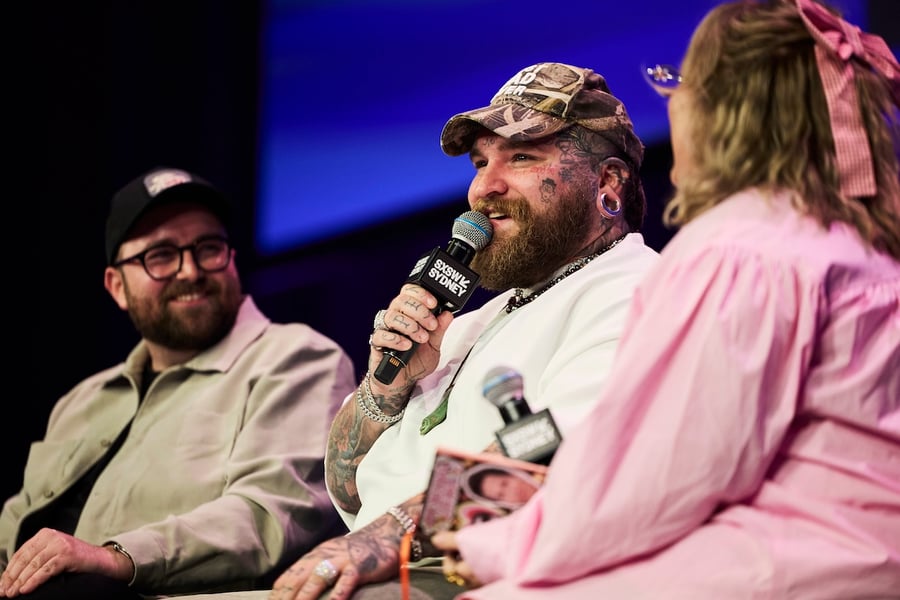While AI is writing songs and AI artists are gaining momentum, Teddy Swims fans can rest easy after the US star insisted that no machine can replicate the human messiness, vulnerability, and emotion that fuel good music.
Swims used his SXSW Sydney keynote on Thursday to speak directly about why real music still matters, and how AI should be used by artists for productivity in the creative process. In his case, for example, he has used it to help reimagine older songs with different sounds.
“I’ve started going and taking old songs that were maybe four or five years old, that I always thought were special, I’ve been able to take those and throw them back in and reimagine them, give a prompt and get something back, and go ‘see, I knew there was magic in this’,” Swims, real name Jaten Dimsdale, told the SXSW Sydney crowd.
It also helps the Grammy-nominated star in the ideation process, to hear how a melody would sound in different genres. He will often take some lyrics, use an AI tool to turn it into an entire song, and within seconds is provided a general idea of what it could sound like fully fleshed out as a country song, or a rock ‘n’ roll song, or a pop song.
“Instead of taking time to reproduce something over and over and over again in so many different ways, which would take months sometimes, you could get the idea of what something would be fully fleshed out in seconds.”
Plus, he said, in instances where a single word in a track needs to be re-recorded, putting his voice through AI is an easier process.
“Say there’s a song coming out next week, and my producer is all the way in LA and I’m here in Sydney, and he wants to change an ‘and’ to a ‘but’ or something like that. Rather than me going and renting a studio and doing the line 15 times and spending time and money and effort, he’s actually been able to go in and change the word with my AI voice, plug it right in and you wouldn’t even tell the difference,” Swims said.
Love Music?
Get your daily dose of everything happening in Australian/New Zealand music and globally.
“Something small like that, that’s where I think AI has been very helpful.”
Despite feeling overwhelming optimistic about the use of AI in music, Swims said so much of the creative process will still rely on human emotions and vulnerability, something AI could never replace.
“I think so much of the AI thing, the kids coming up are going to be learning how to prompt in specific ways and get exactly what they want. I think learning the prompting is something I’ve been also learning, adapting to it. I think it’s allowed a little bit more humanity, if you use it the correct way, I think it’s a beautiful tool.”
In regards to protecting artist rights and royalties, which artists like Briggs and Jack Rivers discussed at a hearing for the national cultural policy inquiry in Canberra last month, Swims’ manager Luke Conway said its imperative that artists are compensated.
“The streaming platforms need to find a way to identify, ‘is this a real artist? Alright. Well, we need to have a different royalty structure for them’,” he said. “They [AI artists] shouldn’t get paid the same way a real artist who crafted their work, did their time, does.”
He added: “It’s a tool. But it has to be done ethically and responsibly.”



































